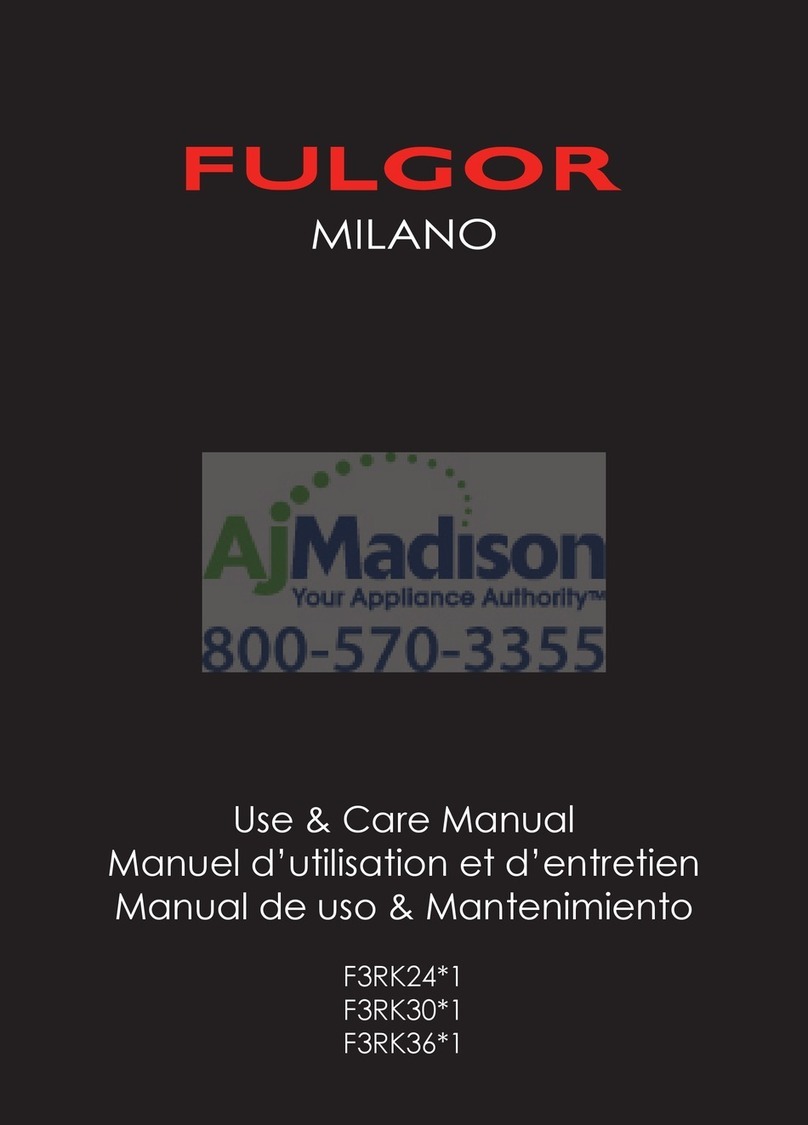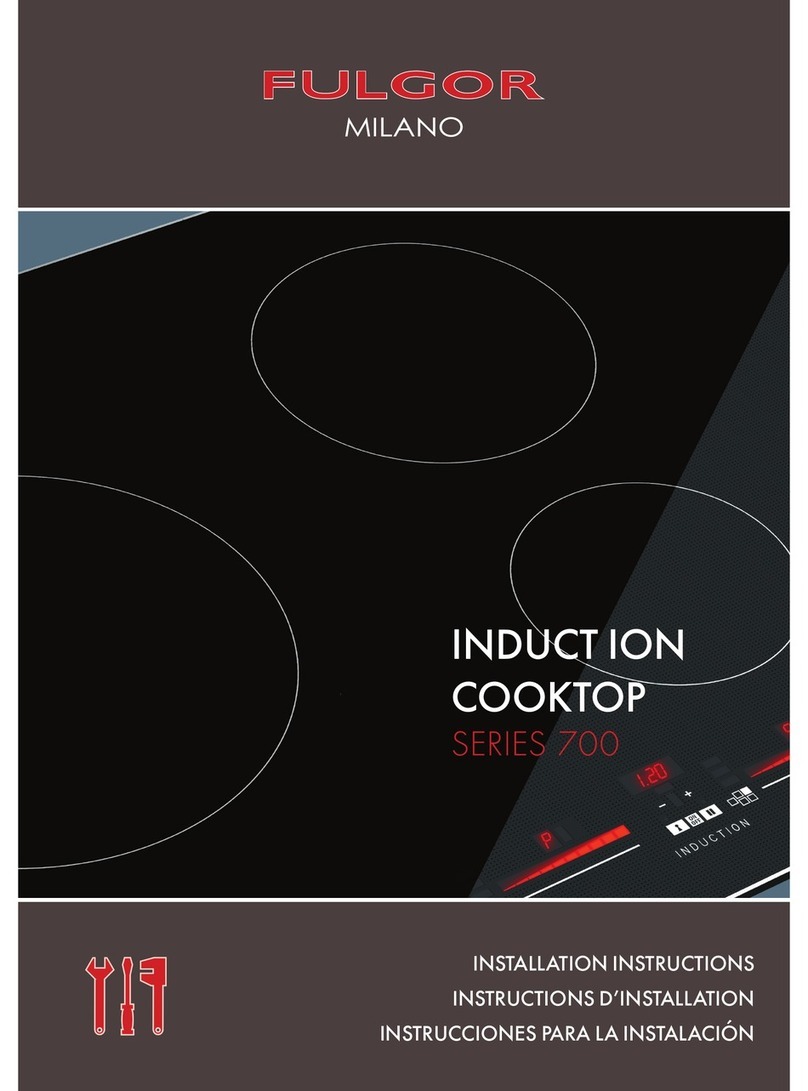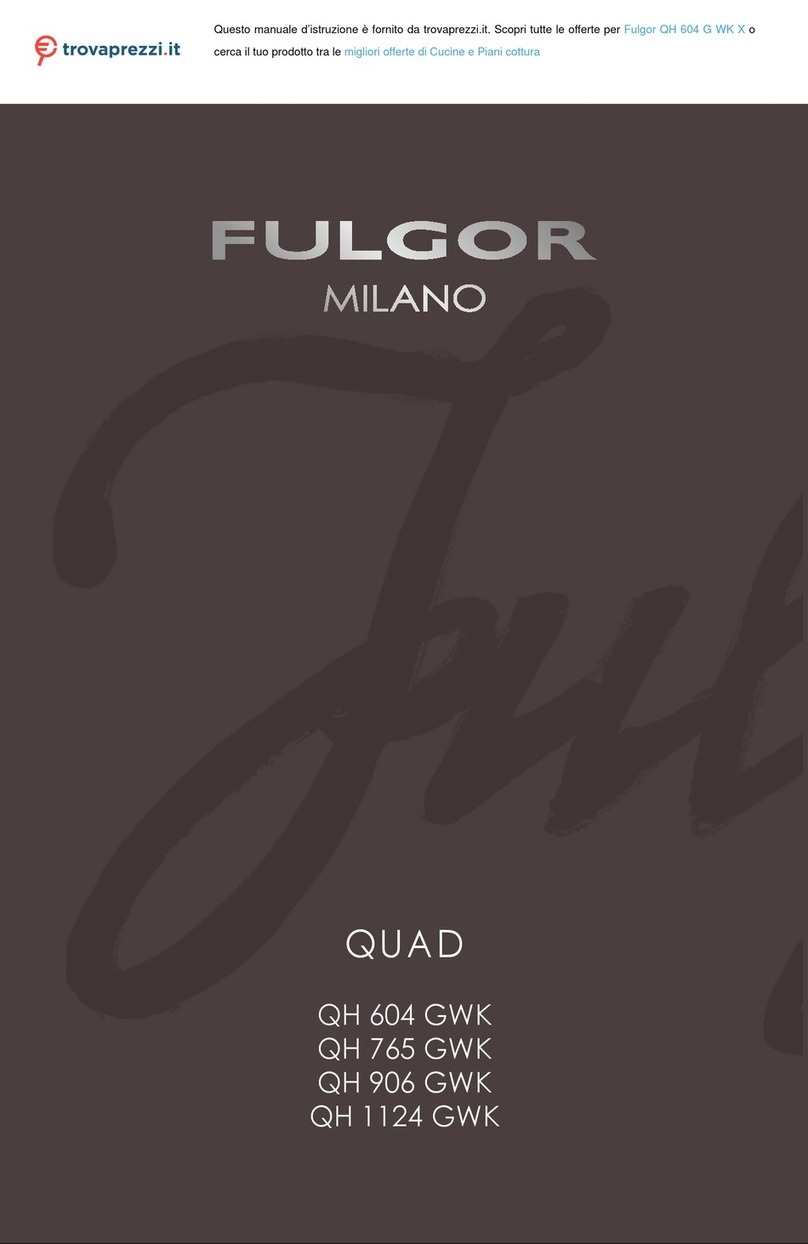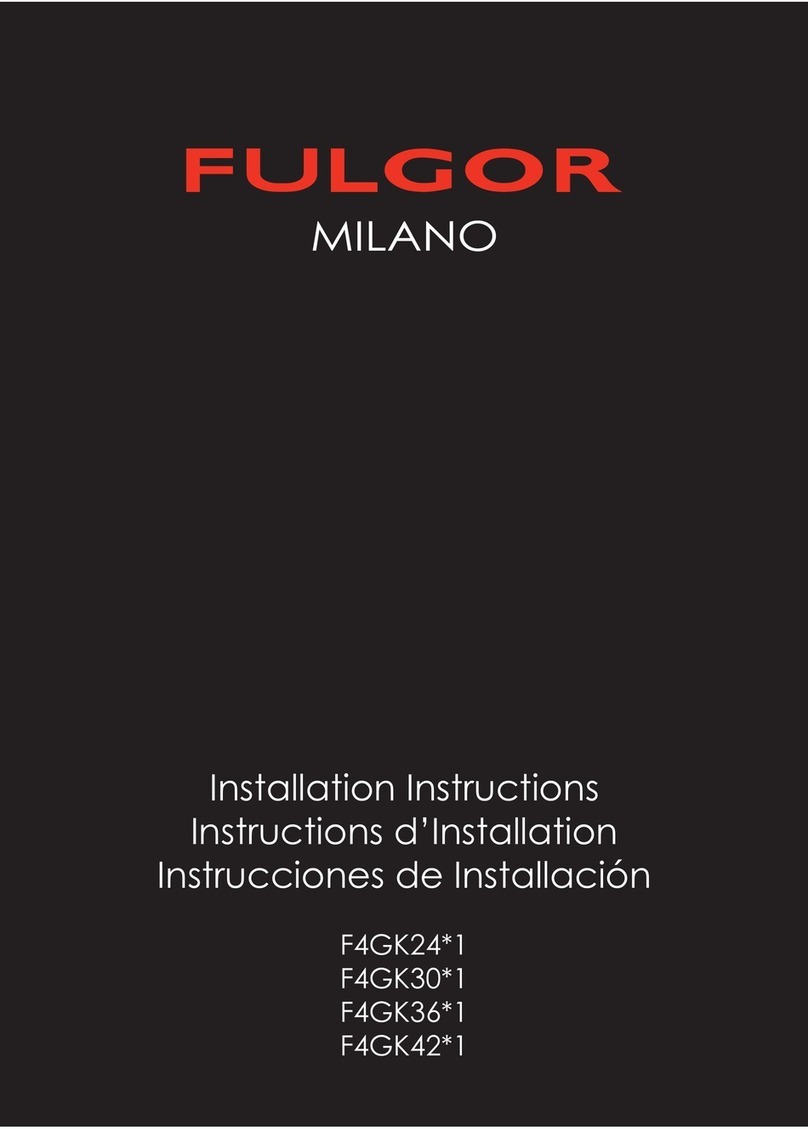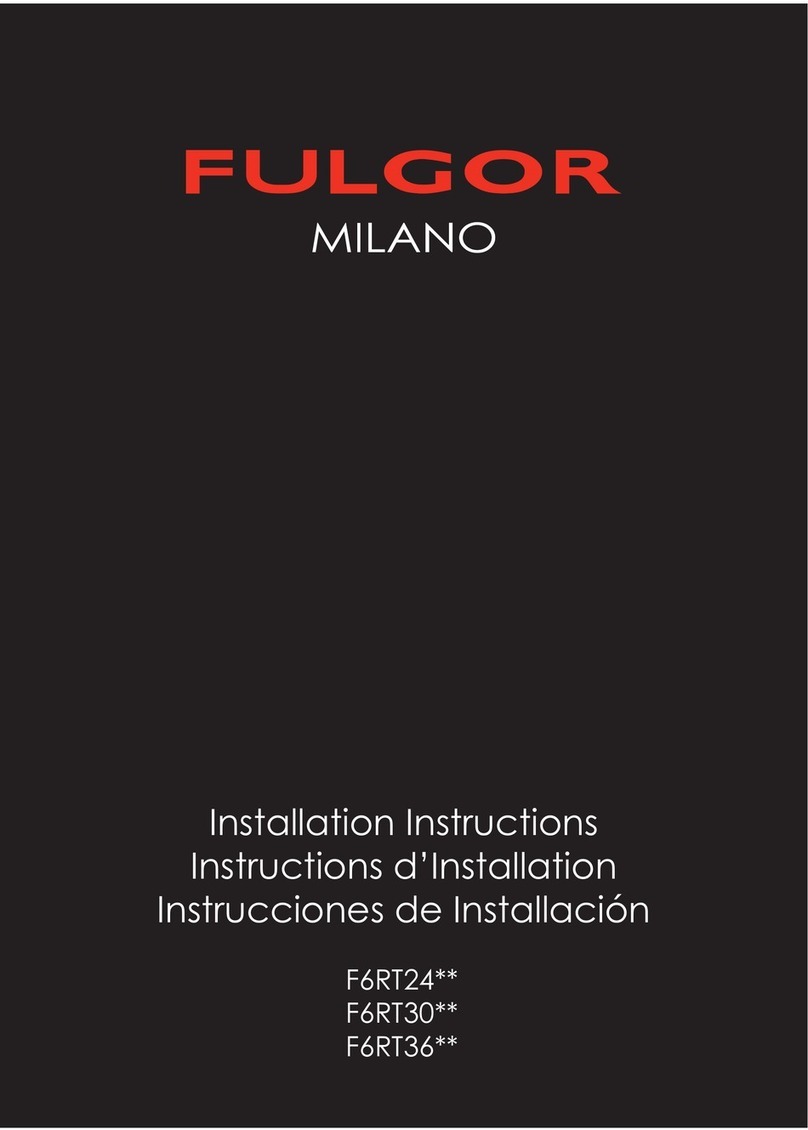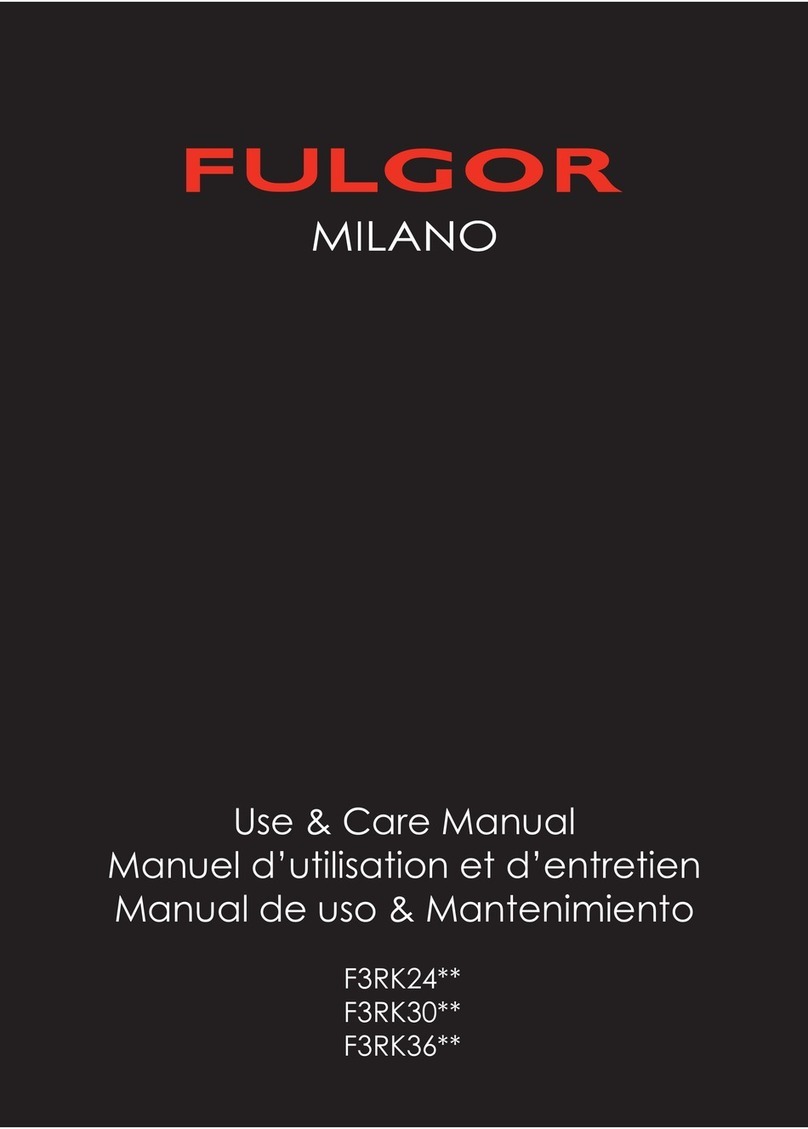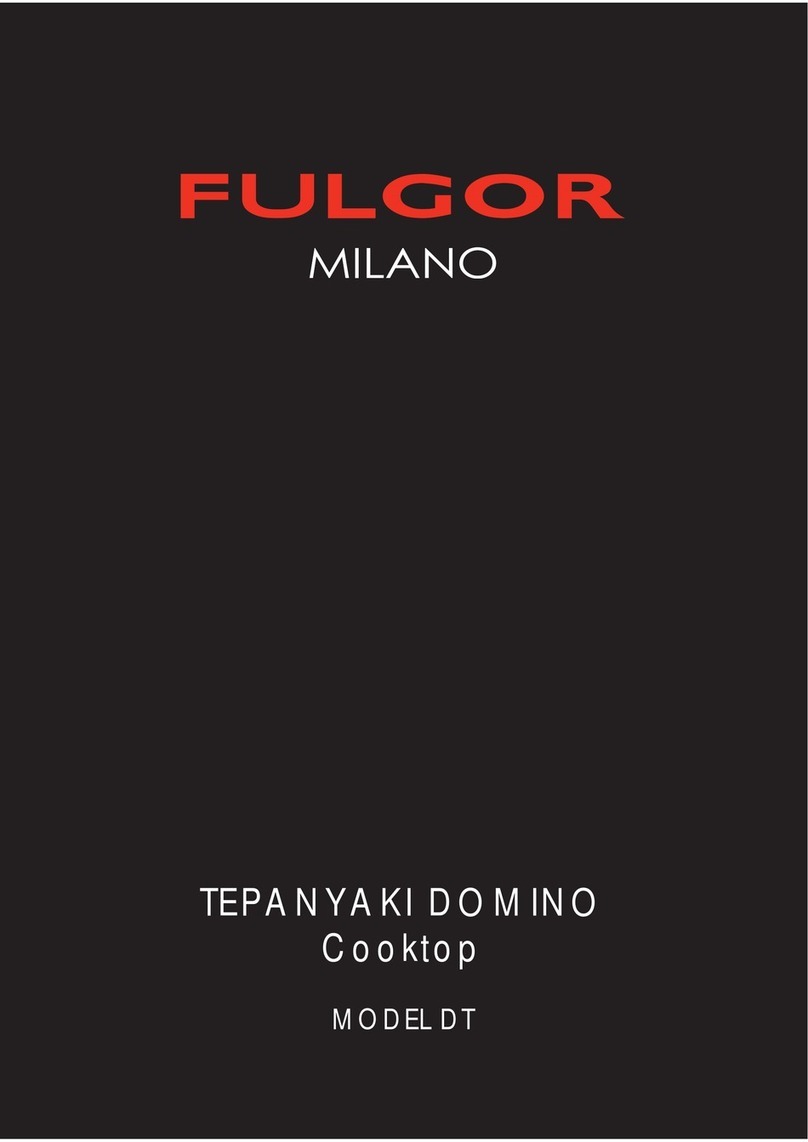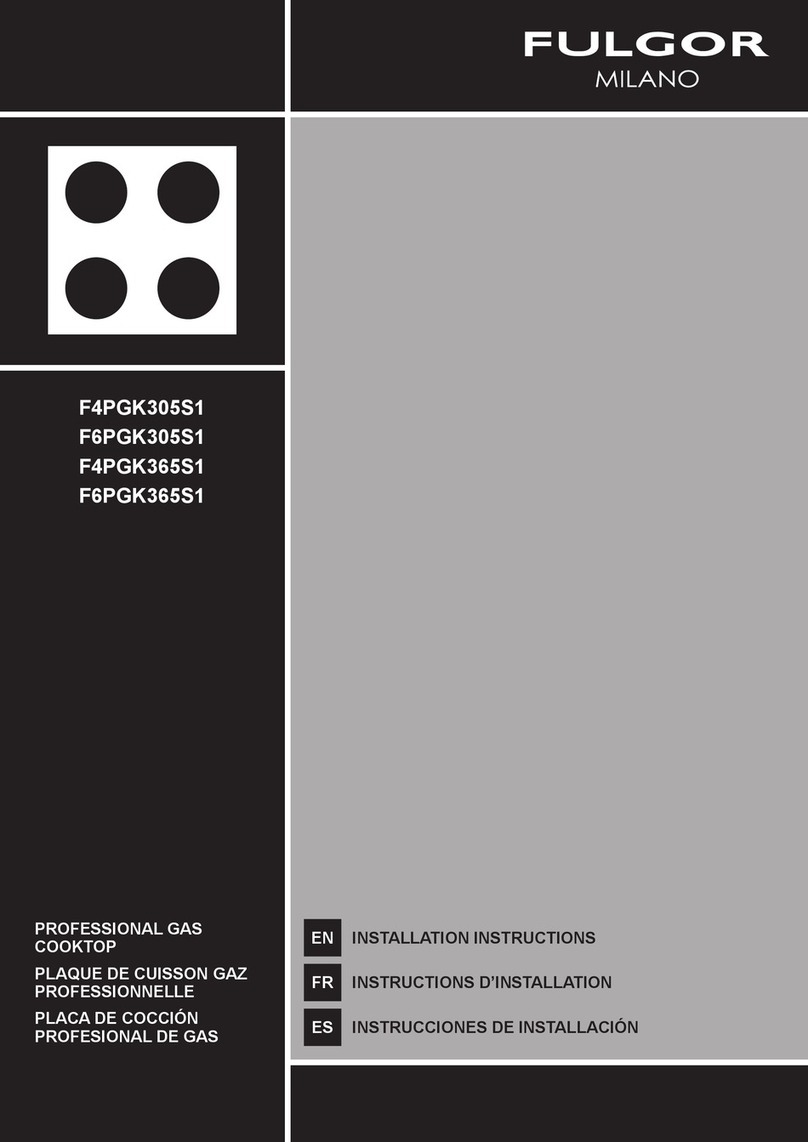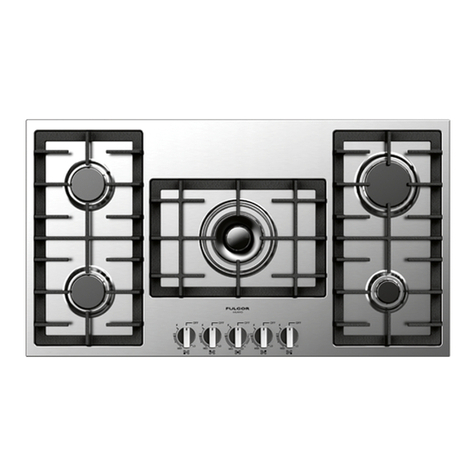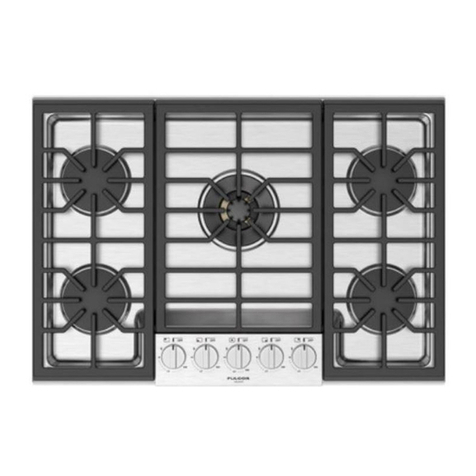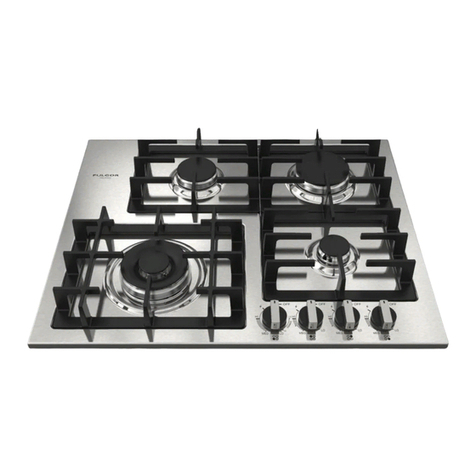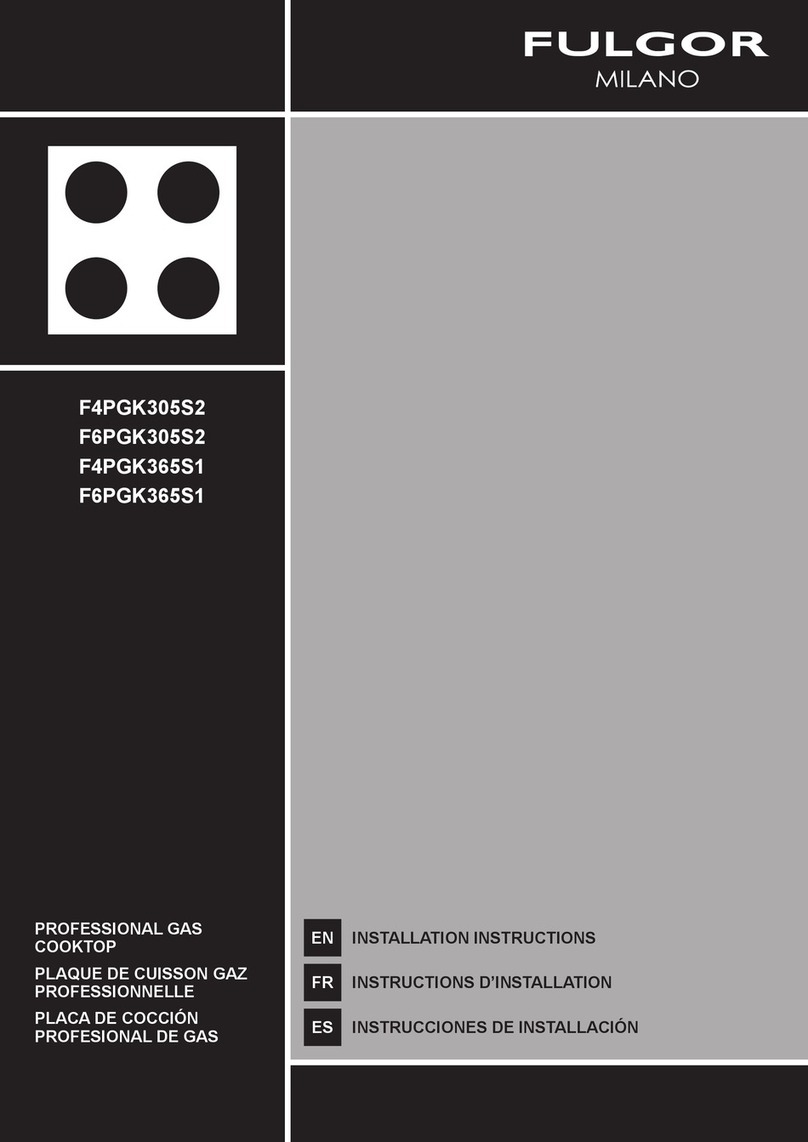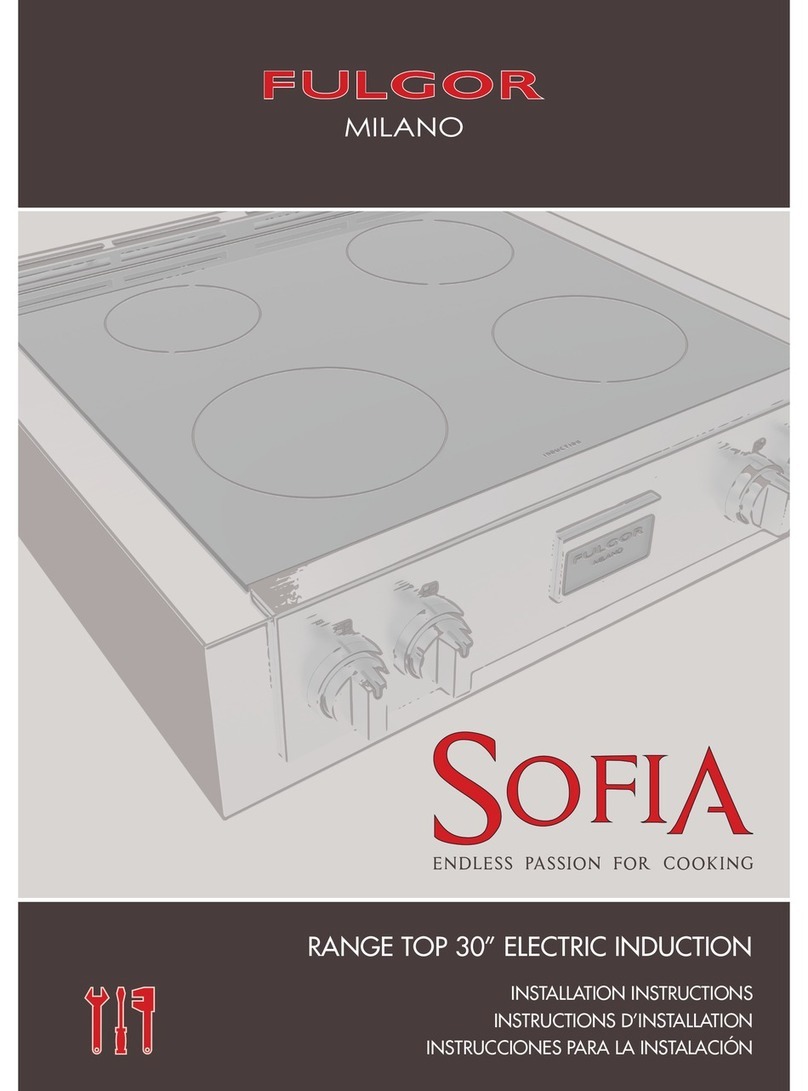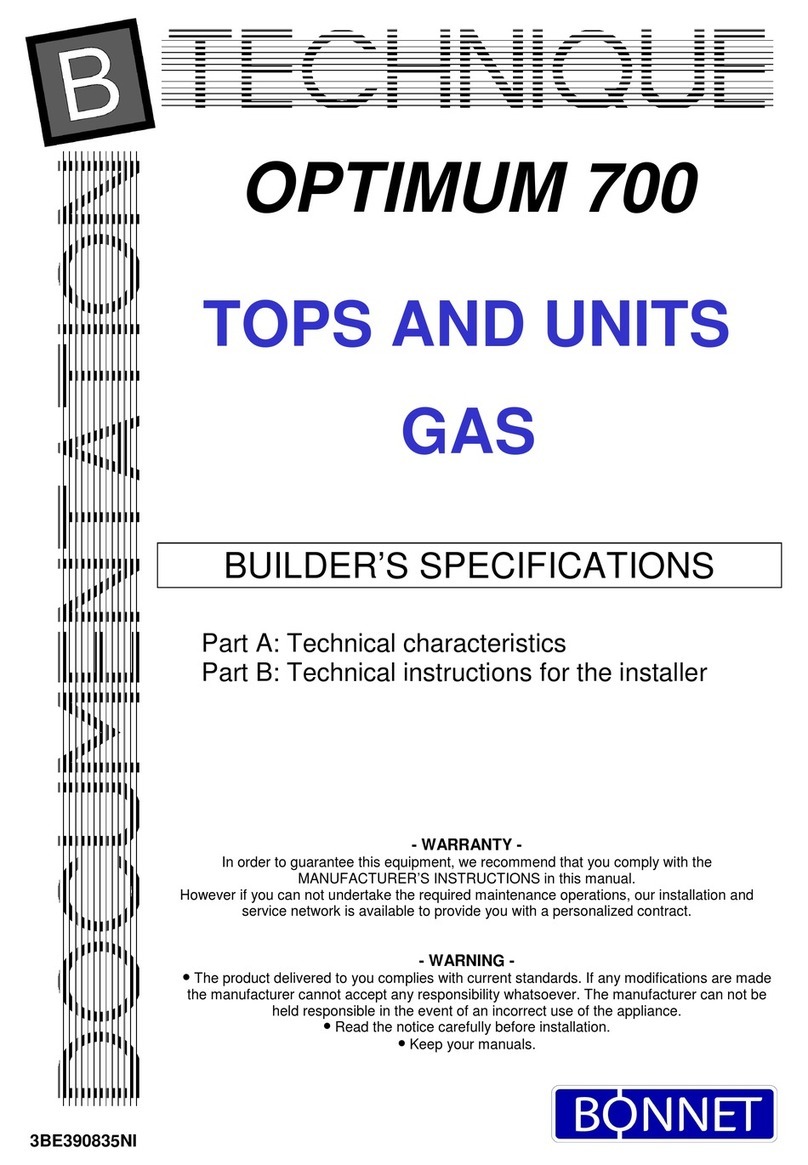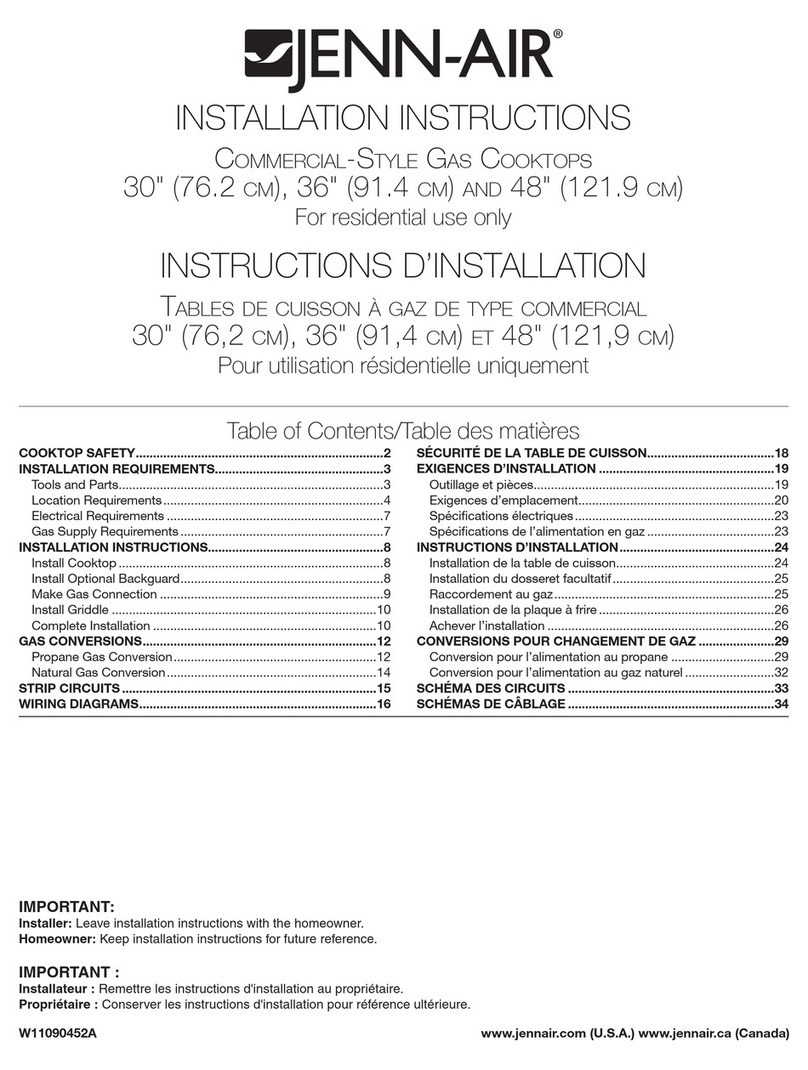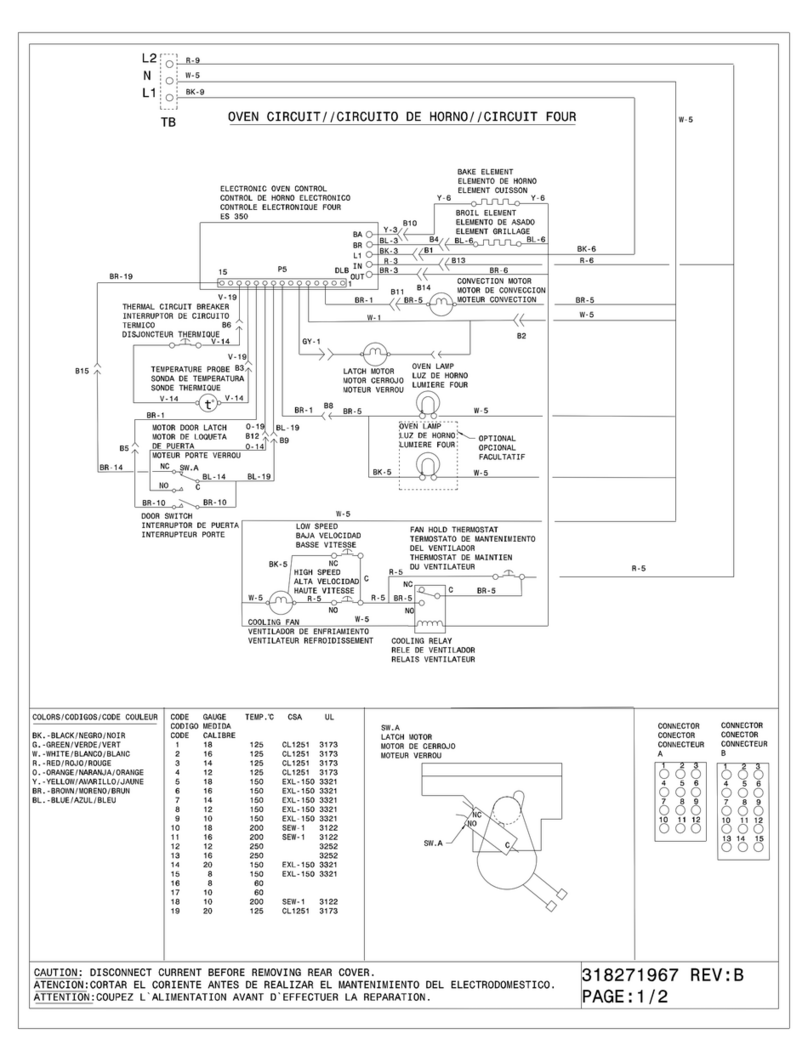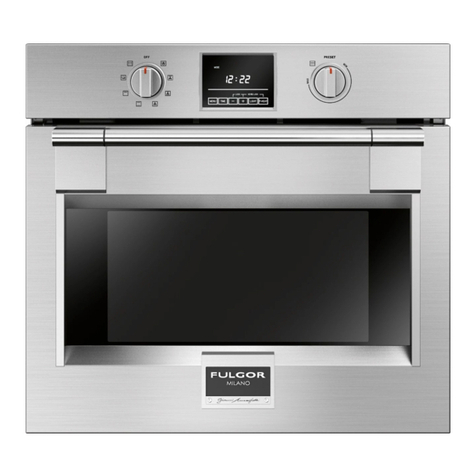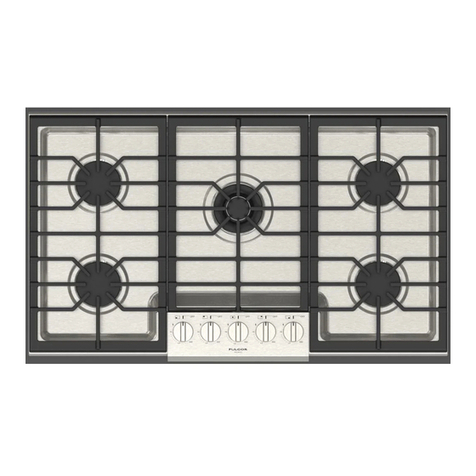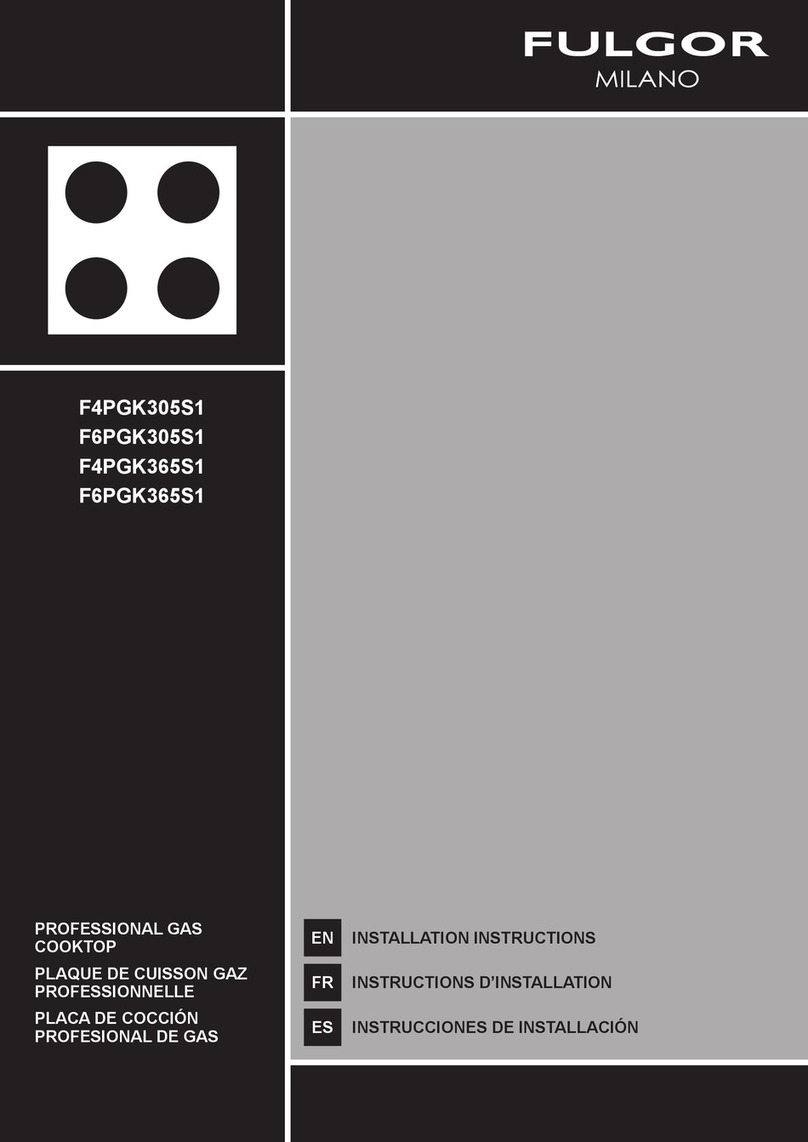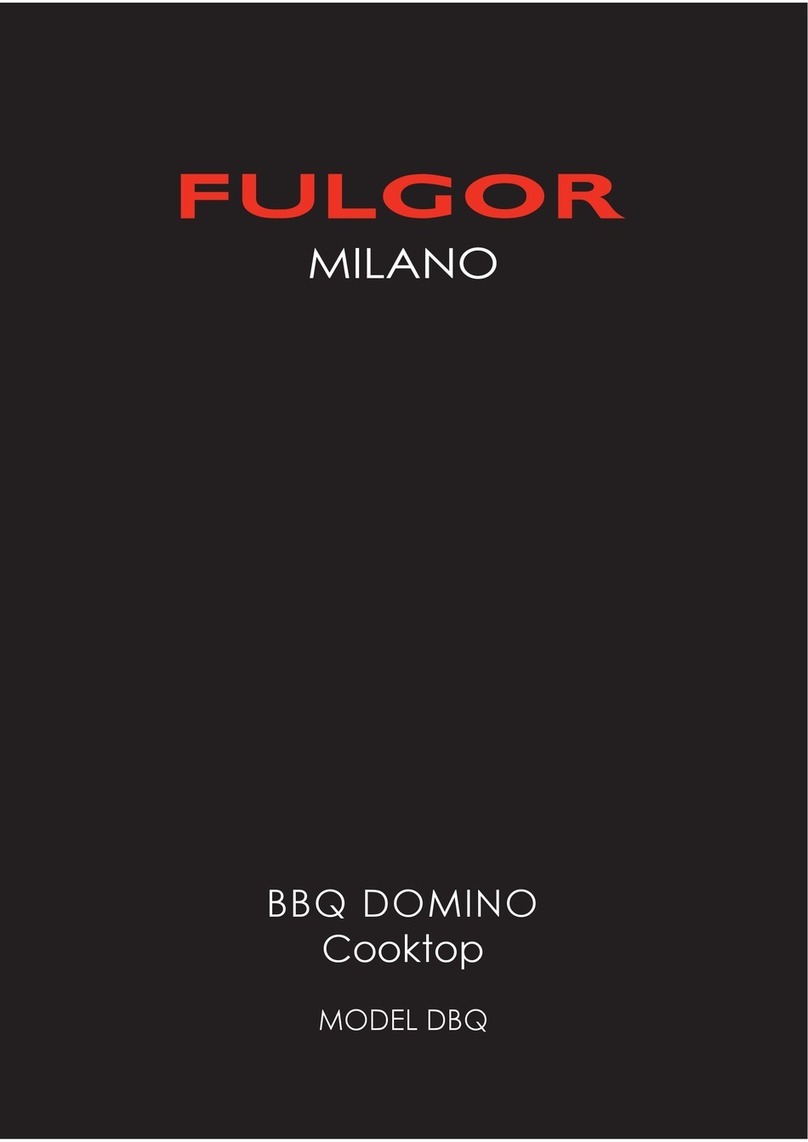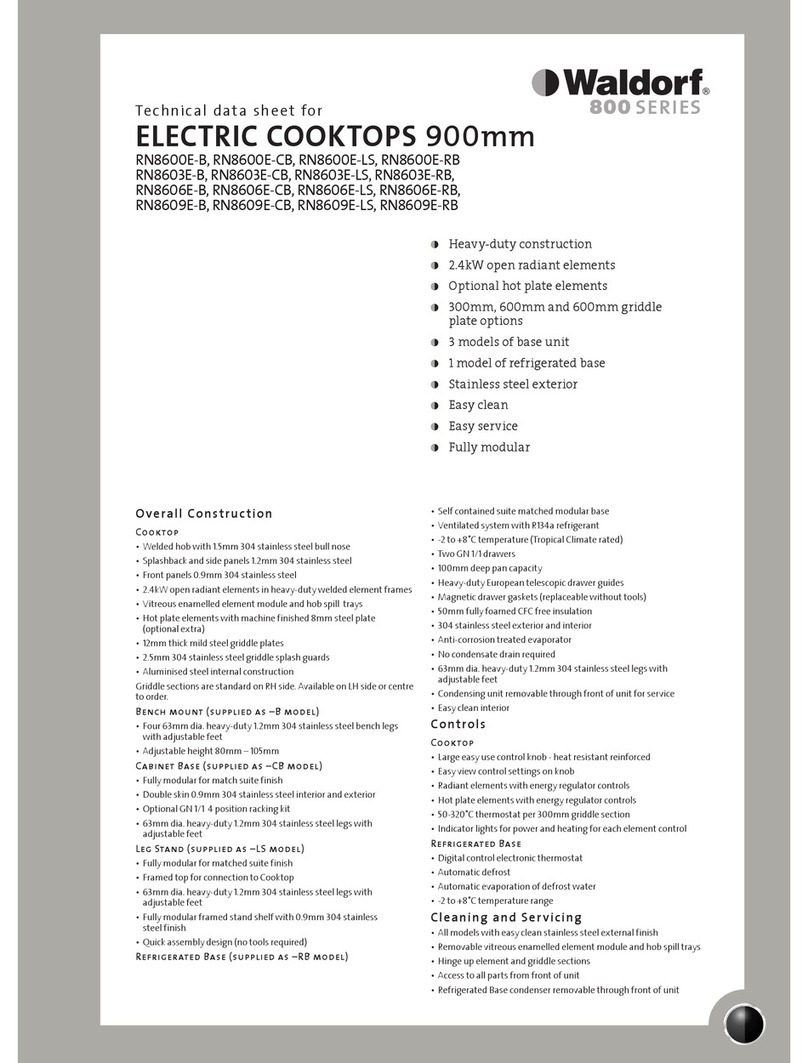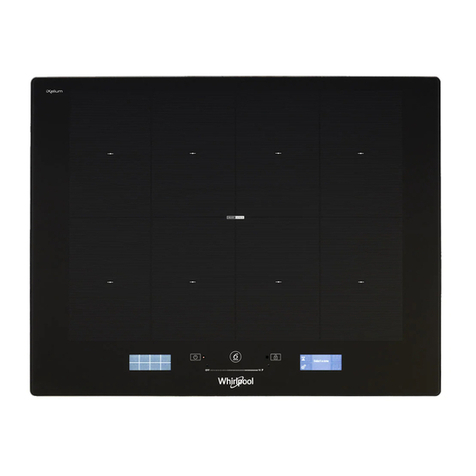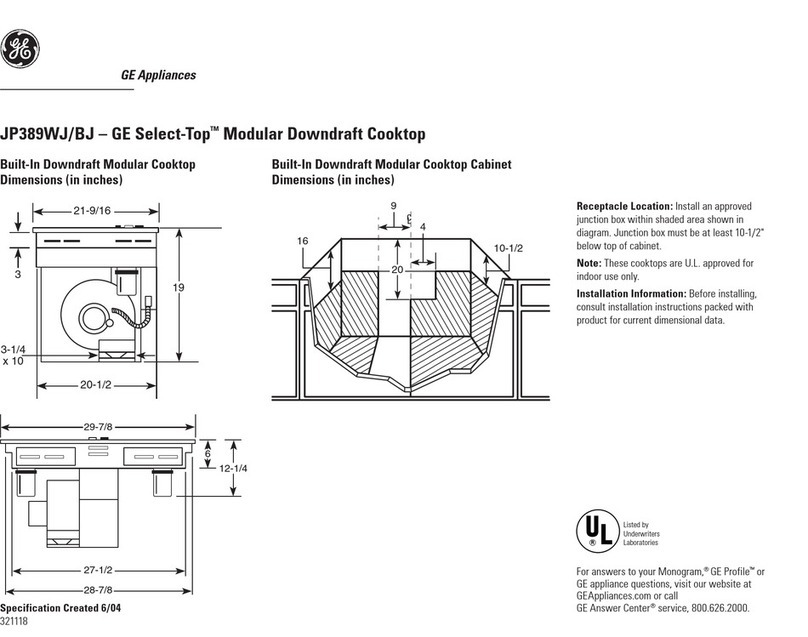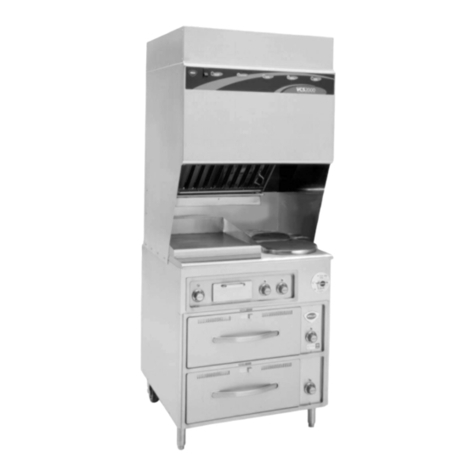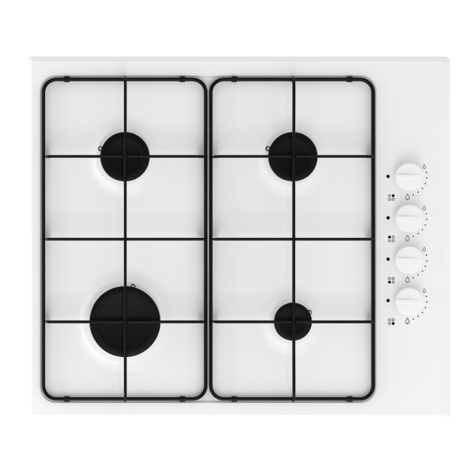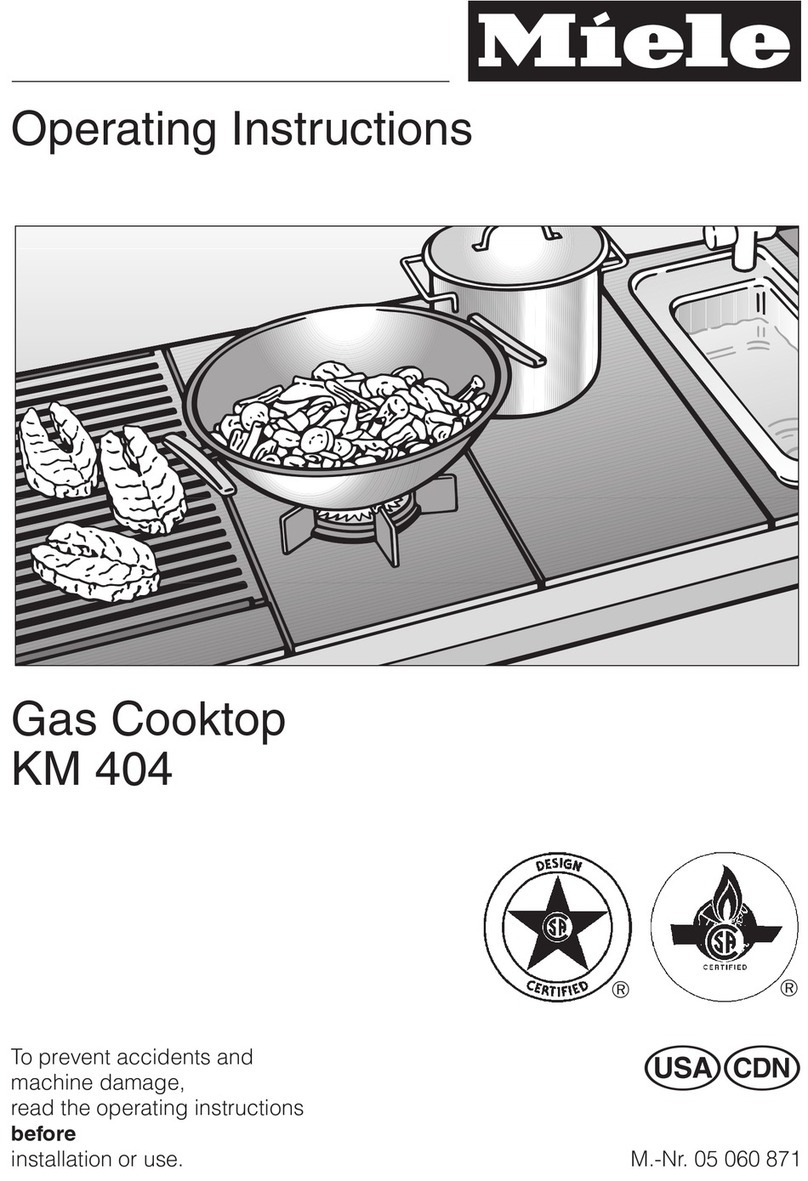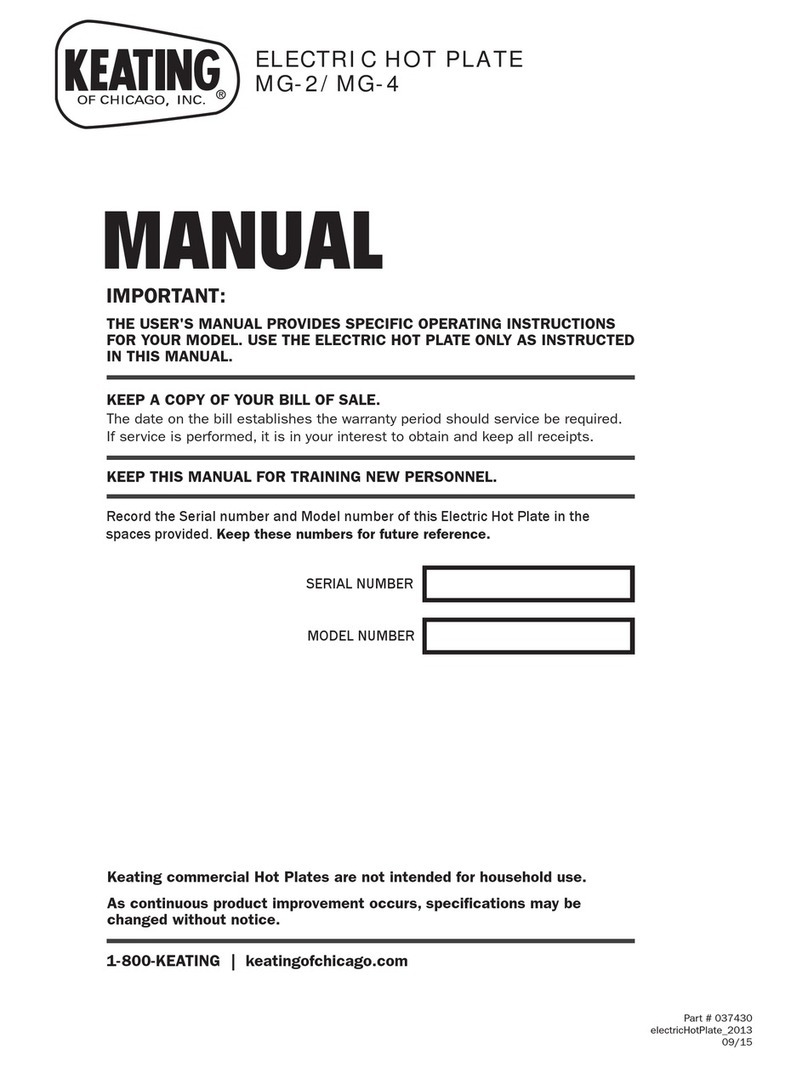
ENGLISH
Use & Care Manual
4
PERSONAL SAFETY
WARNING
To reduce the risk of injury to persons, in the
event of a grease fire, observe the following:
Grease is flammable and should be handled
carefully.
Do not use water on grease fires.
Never pick up a flaming pan. Smother sheet or
flat tray.
Flaming grease outside of utensil can be
extinguished with baking soda or, if available, a
multipurpose dry chemical or foam type
extinguisher.
Let fat cool before attempting to handle it.
Wipe up spill over immediately.
If you are "flaming" liquors or other spirits under
an exhaust, turn the fan off. The draft could
cause the flames to spread out of control.
Never leave the surface area unattended at
high heat setting. Boil over cause smoking and
greasy spill over, which may ignite.
CAUTION
Do not allow aluminum foil, plastic, paper or cloth to
come in contact with a hot Surface. Do not allow pans
to boil dry.
Be careful to prevent burns. If the flames do
not go out immediately, evacuate and call the
fire department.
Always have a working smoke detector near the
kitchen.
Leave the hood ventilator on when flambéing
food only if there is smoke without flames.
Use an extinguisher only if
You know you have a Class ABC extinguisher,
and you already know how to operate it.
The fire is small and contained in the area
where it started.
The fire department is being called.
You can fight the fire with your back to an exit.
Never use water on cooking fires.
In the event that personal clothing catches fire,
drop and roll immediately to extinguish
flames.
WARNING
To reduce the risk of burn injuries during
cooktop use, observe the following:
Never use the cooktop to warm or heat a room.
Children or pets should not be left alone or
unattended in an area where appliances are in
use. They should never be allowed to sit or stand
on any part of the appliance.
CAUTION
Do not store items of interest to children in cabinets
above a range or on the backguard of a range;
children climbing on the range to reach items could be
seriously injured.
When using the cooktop
Do not touch surface units or areas near
units. Surface areas may become hot enough
to cause burns. Surface elements may be hot
even though they are dark in color. During and
after use, do not touch or let flammable
materials contact heating elements until they
have had time to cool.
When using the cooktop installed over oven
Do not touch heating elements or interior
surfaces of oven. Heating elements may be
hot even though they are dark in color. Interior
surfaces of an oven become hot enough to
cause burns. During and after use, do not
touch, or let clothing or other flammable
materials contact heating elements or interior
surfaces of oven until they have had sufficient
time to cool. Other surfaces of the appliance
may become hot enough to cause burns –
among these surfaces are (identification of
surfaces – for example, oven vent openings
and surfaces near these openings, oven
doors, and windows of oven doors).
To minimize the possibility of burns, ignition of
flammable materials and spillage, the handle
of a container should be turned toward the
center of the cooktop without extending over
any nearby surface units.
Use only certain types of glass, heatproof
glass ceramic, ceramic, earthenware, or other
glazed utensils that are suitable for cooktop
use
IMPORTANT
Safety Instructions
Please read all instructions before using this appliance.
COOKTOP SAFETY
WARNING
Proper Installation
Be sure your appliance is properly installed
and grounded by a qualified technician.
Never Use Your Appliance for Warming or
Heating the Room
Do Not Leave Children Alone
Children should not be left alone or
unattended in area where appliance is in use.
They should never be allowed to sit or stand
on any part of the appliance.
Wear Proper Apparel
Loose-fitting or hanging garments should
never be worn while using the appliance.
User Servicing
Do not repair or replace any part of the
appliance unless specifically recommended in
the manual. All other servicing should be
referred to a qualified technician.
Storage in or on Appliance
Flammable materials should not be stored in
an oven or near surface units.
Do Not Use Water on Grease Fires
Smother fire or flame or use dry chemical or
foam-type extinguisher.
Use Only Dry Potholders
Moist or damp potholders on hot surfaces may
result in burns from steam. Do not let
potholder touch hot heating elements. Do not
use a towel or other bulky cloth.
Use Proper Pan Size
This appliance is equipped with one or more
surface units of different size. Select utensils
having flat bottoms large enough to cover the
surface unit heating element. The use of
undersized utensils will expose a portion of
the heating element to direct contact and may
result in ignition of clothing. Proper
relationship of utensil to burner will also
improve efficiency.
Never Leave Surface Units Unattended at High
Heat Settings
Boil over causes smoking and greasy
spillovers that may ignite.
Make Sure Reflector Pans or Drip Bowls Are in
Place
Absence of these pans or bowls during
cooking may subject wiring or components
underneath to damage.
Protective Liners
Do not use aluminum foil to line surface unit
drip bowls or oven bottoms, except as
suggested in the manual. Improper installation
of these liners may result in a risk of electric
shock, or fire.
Glazed Cooking Utensils
Only certain types of glass, glass/ceramic,
ceramic, earthenware, or other glazed utensils
are suitable for range-top service without
breaking due to the sudden change in
temperature.
Utensil Handles Should Be Turned Inward and
Not Extend Over Adjacent Surface Units
To reduce the risk of burns, ignition of
flammable materials, and spillage due to
unintentional contact with the utensil, the
handle of a utensil should be positioned so
that it is turned inward, and does not extend
over adjacent surface units.
Do Not Soak Removable Heating Elements
Heating elements should never be immersed
in water.
Do Not Cook on Broken Cook-Top
If cook-top should break, cleaning solutions
and spillovers may penetrate the broken cook-
top and create a risk of electric shock. Contact
a qualified technician immediately.
Clean Cook-Top With Caution
If a wet sponge or cloth is used to wipe spills on
a hot cooking area, be careful to avoid steam
burn. Some cleaners can produce noxious
fumes if applied to a hot surface.
